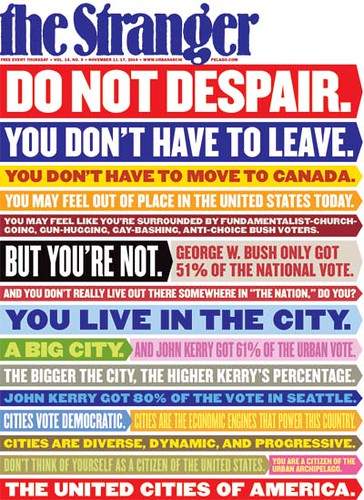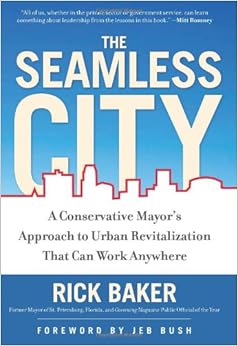Not being a Democrat isn't a compelling argument to vote Republican in municipal elections (in DC or anywhere)
The Washington City Paper Loose Lips column has a piece, After a Leadership Shake-Up, the D.C. GOP Tries to Get One Council Seat," about the local Republican Party gearing up again in a bid to be relevant.
I think they are misguided and misread the situation, not unlike what Janan Ganesh's recent piece ("Labour's analysis paralysis blights a party of clever fools") in the Financial Times discusses, ripping the Labour Party for not understanding why they failed in the recent election, believing that it was lack of big ideas, rather than being "too left" with an inadequate candidate for prime minister, even though for the most part he rallied during the campaign, doing better on the stump than what was expected.
Just being "a Republican" isn't enough of a difference to be meaningful to DC voters, even if we aren't happy with the agenda-less dominance of the majority party. Most of us living in cities are "progressive." We aren't looking for "oppositional politics" out of some theoretical position that favors "competition." We do want alternatives, hopefully. It's just that being anti-government isn't the kind of position that is likely to have much relevance.
Plus, Congressional Republicans have little interest in the kinds of issues that matter to cities--their brand is sullied as far as municipal politics are concerned--so I don't see how local Republicans working with crazy Congressional Republicans is a useful alliance for Republicans desiring success at the local level.
It's tough to be successful against "the hegemon," but for Republicans to be successful running for City Council, they have to have a stellar urban-appropriate agenda. Catania proved in a special election, running against the old guard, that a non-Democrat could have a chance.
These days an urban-appropriate conservative agenda might not be John Lindsay, who was quite liberal and would be completely out of place in today's Republican Party, but maybe someone like Nelson Rockefeller. But practical city focused issues aren't what interests the kind of people who call themselves Republicans now, in all likelihood--the kind of people who want to pursue political office at whatever level.
Rep. Mike Turner (Dayton), a Republican, is former mayor of Dayton, Ohio. I heard him speak about 10 years ago. I was impressed. He seemed to have a good sense of the issues present in cities. And as a mayor in a Rust Belt city that was losing headquarters companies (like NCR), industry (GM had a bunch of plants in the area), and military functions (Wright-Patterson AFB), he couldn't be ideologically driven, he had to address the facts on the ground and respond appropriately.
Local Republicans ought to reach out to people like him if they want to come up with a path for success in municipal politics in DC or most other big cities. Similarly, Greg Ballard, Mayor of Indianapolis is Republican too, and another potential resource, if local Republicans really want to make a valiant, knowledge-infused effort.
Similarly, the Tories in the UK--the government is incredibly centralized--have a devolution agenda giving more power to cities/localities. (It's interesting, there, because they don't have a history of elected mayors, the left is against this kind of devolution, in many cases, like Manchester.)
I haven't gotten around to reading The Seamless City: A Conservative Mayor's Approach to Urban Revitalization that Can Work Anywhere by Rick Baker, the Republican former mayor of St. Petersburg, Florida, who won with 70% of the vote in a city predominated by a Democratic electorate, but it's around the house somewhere.
The webpage says the approach covers:
- How maintaining basic amenities, like running water, requires constant vigilance—and sometimes tough decisions on the part of city leadership
- Why a vibrant downtown is essential to attract businesses and create jobs · Why the most effective leadership is servant leadership
- How to find and implement the most effective solutions to a city's most challenging problems
- Why city government needs to regard the city as a seamless whole, with no section underserved or overlooked
Even so, it'd have to be an incredibly compelling candidate to be successful as a Republican in Washington, DC.
Comparable to how David Clarke could be city council chair when the city was majority black. He had great civil rights credibility (Clarke was a Democrat but the analogy is relevant).
 The 2008 local Republican agenda was decent. FWIW, the 2008 urban agenda proposed to the National Republican Party by the DC Republican Party is an acceptable read, even if I am not hyped on the emphasis on choice, cutting taxes (e.g., Tax Holidays are mostly stupid, property taxes are low, sales taxes are about the same as other jurisdictions), rather than making existing governmental institutions highly functioning.
The 2008 local Republican agenda was decent. FWIW, the 2008 urban agenda proposed to the National Republican Party by the DC Republican Party is an acceptable read, even if I am not hyped on the emphasis on choice, cutting taxes (e.g., Tax Holidays are mostly stupid, property taxes are low, sales taxes are about the same as other jurisdictions), rather than making existing governmental institutions highly functioning.Fred Siegel's ideas about the three ways cities go back also provides grist for a Republican agenda for local government. Fred Siegel is the author of The Future Once Happened Here, which I think is an important book on the decline of major cities. He's considered to be conservative, although he describes himself as a "small government Democrat." From "3 ways cities go bad," Arizona Republic, 2009:
Siegel believes there are three fundamental ways in which big cities go bad. The first is to lose control of order and civility in their public space - the streets, sidewalks and parks. This was an essential part of New York's deterioration and subsequent crime epidemic and the primary element of its recovery. ...In tight economic times, I think any thinking progressive is going to be concerned with these issues, and will be responsive to candidates who offer alternatives.
The other two ways big cities go bad, according to Siegel, are interrelated: control of city politics by municipal unions and an economy that becomes too much government-driven and too little privately-driven ...
All municipal politics tend to be an insiders' affair, characterized by small-turnout elections dominated by groups with a stake in the outcome - neighborhood associations, the cultural community, downtown-development interests and city workers.
When municipal unions dominate the mix, in essence choosing their bosses, fiscal discipline becomes impossible. And once government overhead passes a critical point, the only way to create space for private-sector growth is to shrink government, a virtually impossible task once city unions dominate elections.
The result is what Siegel has called an "entitlement economy," where opportunity depends on political decisions, not private initiative
Labels: elections and campaigns, electoral politics and influence, municipal politics, progressive urban political agenda





0 Comments:
Post a Comment
<< Home